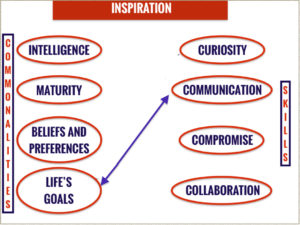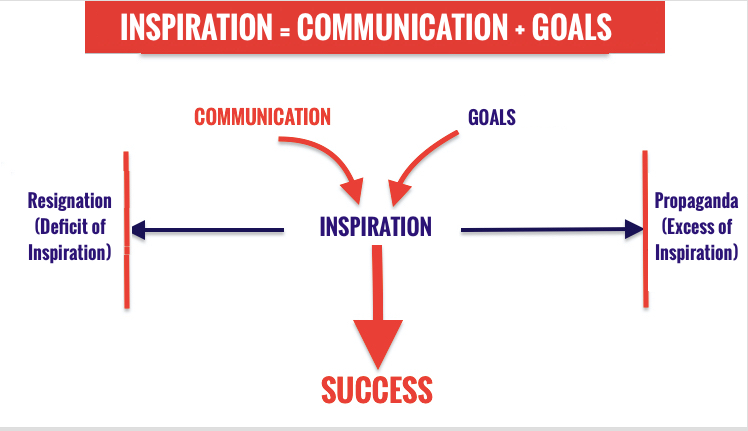Inspiration is defined in the dictionary as either "drawing in breath," or "the process of being mentally stimulated to do or feel something, especially to do something." Both of these make sense in terms of yet another link between the reptilian brain and the higher brain, because it is a "higher-brained way" of directly stimulating someone's identity-level sense of vitality and excitement to be alive.

Communication can be looked at in various ways. Simply put, it is an expression of ideas that also likely carry emotional energy as well. This makes them similar to beliefs, which have the same structure, but the difference is that beliefs are contained within us, sometimes unconsciously, until expressed to others in communication.
What makes Inspiration unique as a character virtue, is that it goes deeper than the emotions, to the gender instincts, triggering them to cause the person to discover or remember what they are here on earth to do with all their unique gifts and resources. Through combining communication with attention to goals and life's goals, it elevates the passions and links the higher brain to the reptilian brain through being a character virtue with a special function: a "life line" or "breath of life."
Consider it as what a best friend might do when someone is at their lowest, to keep their spirit alive." But also consider it something to rejuvenate one's mate even when they are excelling toward a goal, to give them that push over the top to reach it. Like helping someone up a ladder, with a boost of masculinity or femininity, the reptilian-brained energies of life itself.

The vice of deficit for Inspiration is called, "Resignation," which is in essence, "settling for less" in one's goals. When it comes to life's goals and your dreams, it doesn't make sense to "go for less," and so the one exhibiting Resignation toward a potential partner is actually doing them harm by sabotaging their dreams - a passive way of controlling a person. When Resignation is a vice in a person about their own life or sense of identity, they are essentially "sabotaging themselves" with it. It is another vice of Inspiration.
We might then often see a couple have a falling out, because simplistically, there was a "lack of support" between the partners. This is, perhaps, the over-simplistic way of describing what so many people say about their partner, when in reality it is deeper than just a lack of support. It borders on a disregard for the very life's essence of the other person, which in practical terms, means a disregard for their level of masculinity or femininity - the "life of the soul," the "passion for living" that rests in encouragement of their dreams.
Inspiration has bearing on our performance in phase three - intellectual attraction - step eight, where we seek to amplify the best virtues toward our goals.

